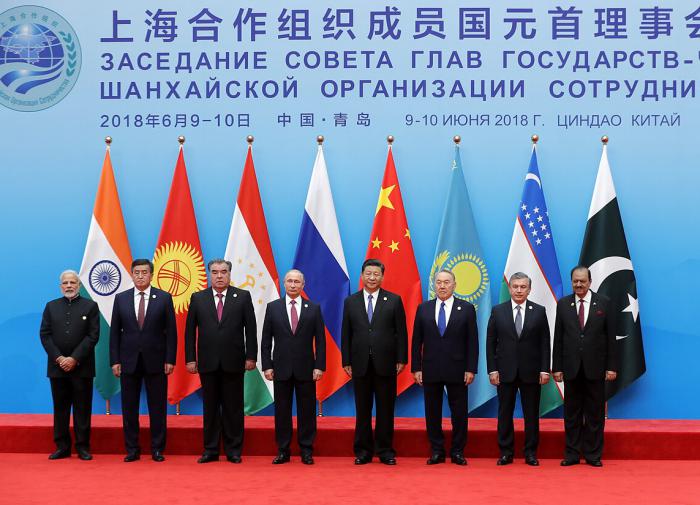SCO summit in Astana: Asia shows determination to build multipolar world
The SCO summit in Astana showed that the organization understands the threats to its security. The SCO will defend itself against terrorism, drug trafficking and color revolutions.

The SCO must protect its right to development
The summit of the Shanghai Cooperation Organization (SCO) ended in Astana. The list of participants included: leaders of Russia, China, Mongolia (observer), Azerbaijan (observer), Pakistan, Tajikistan, Uzbekistan, Turkey (by invitation as a guest), Qatar (by invitation), Kyrgyzstan, Belarus, Turkmenistan (by invitation), as well as Indian Foreign Minister Subrahmanyam Jaishankar and UN Secretary-General Antonio Guterres.
The SCO positions itself as an organization that, in addition to developing regional economic ties, strengthens the security of member countries and struggles against terrorism and drug trafficking.
Following the results of the 24th summit, SCO participants signed the Astana Declaration, the press service of the President of Kazakhstan reports.
According to the document:
1. The SCO regional anti-terrorist structure will be transformed into a universal center. According to Russian President Vladimir Putin, the center will respond to the full range of security threats.
"The security of member countries remains a priority for the SCO,” he said.
"The SCO must protect its right to development and stimulate regional economy. We must resist external interference hand in hand and provide each other with strong support,” said Chinese President Xi Jinping and called on the association countries to increase the exchange of intelligence data.
2. A Center for Combating Drug Trafficking has been created in Tajikistan's Dushanbe.
"The government of the country will create all necessary conditions for the effective operation of this structure,” Tajik President Emomali Rahmon said.
3. The tenth participant has been accepted — Belarus. For a country bordering the West, this is another means of protection, as well as an economic connection to new North-South transport corridors.
Thus, the SCO summit has laid the foundation to a new Eurasian security system that will restrain NATO's aggressiveness.
The following security issues were also discussed in Astana:
- Ukraine. Vladimir Putin said that Russia proposed its plan to end the hostilities, but Moscow would take into account the proposals from its SCO partners.
- Resolution of border conflicts. India and China agreed to begin negotiations to resolve problems along their borders, the Indian Foreign Minister said in a statement. The image of the SCO power bloc will depend on how border problems in the China-India-Pakistan triangle are going to be resolved.
The opinion of the West has ceased to be decisive
Western media emphasise that the absence of Indian Prime Minister Nareandra Modi at the summit in Astana was supposedly a signal of trouble within the "amorphous” organisation. They also report that the SCO has supposedly lost its former regional significance with the accession of Belarus. On Tuesday, The Wall Street Journal wrote that Beijing and Moscow were moving from a 'borderless' friendship to a rivalry in Central Asia, where Russia was 'weakening.'
The purpose of this pressure is to isolate Russia, punish China, belittle the importance of Central Asian countries, and win India over to its side. However, the expanded format of the summit with the participation of the UN Secretary General suggests that Asia is determined to build a multipolar world with the support of the UN.
Subscribe to Pravda.Ru Telegram channel, Facebook, RSS!



